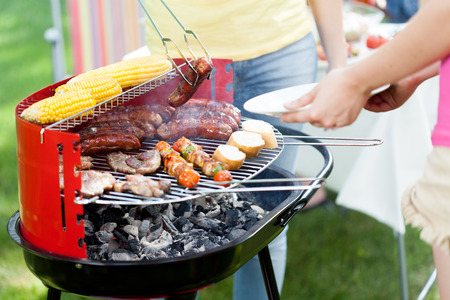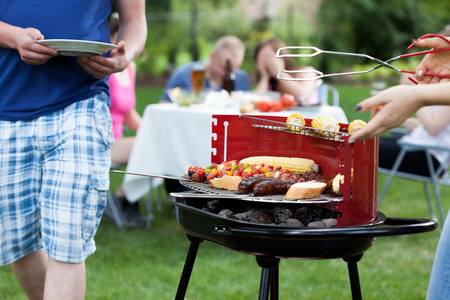There is one time when you do not want your party to be a “blast” — when you are cooking on the grill. In Part 1, we provided 5 general tips for grilling safety. Here are some tips to stay safe when using a charcoal grill.
Prepping the Grill
- Check for rust damage in metal grills. Charcoal can fall through holes and cause a fire.
- The location of the grill and the items around it matter.
- Do not place objects that can burn near the grill even after the flames are gone. The grill can continue to remain hot for many hours.
- Keep combustible items that may be blown by the wind away from the grill.
Starting the Grill and Increasing Heat
- There are several ways to get your charcoal started.
- Charcoal chimney starters use newspaper as fuel.
- If you use starter fluid, make sure you get charcoal fluid and do not add it when coals or kindling have already been ignited.
- Electric charcoal starters to not use file to ignite your charcoal. When using an electric starter, be sure you have and extension cord for outdoor use.
- If the fire needs to grow, use dry kindling or more charcoal. Liquid fuel can cause a flash fire.
Finishing Touches
- About 50% of all grill-related injuries are thermal burns. When you are finished grilling, let the coals completely cool before removing them.
- Dispose of old coals in a metal container.
- Store your leftover charcoal away from children and heat sources.


